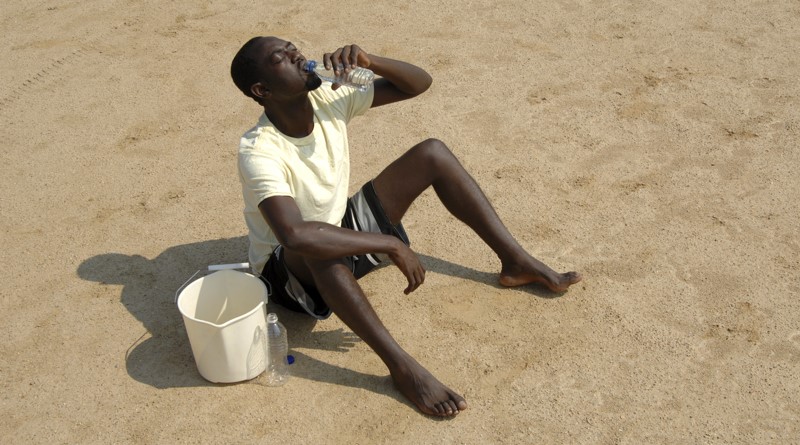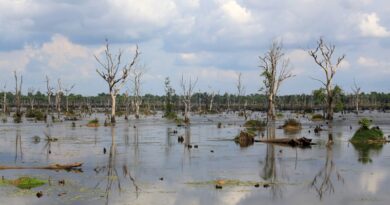In Africa, 700 million may get displaced by 2030 due to water scarcity

As many as 700 million Africans will be displaced due to water scarcity issues by the end of the current decade, a sharp rise from the estimated 250 million people that are affacted by high water stress on the continent now, the World Meteorological Organisation (WMO) has warned. By 2030, only one in five African countries will have sustainably managed water sources.
With changing precipitation patterns and shrinking water reservoirs such as lakes and glaciers, combined with a growing need for water, there is also a growing risk of water-related conflicts, said the UN agency.
A series of extreme climatic events such as increasing droughts, devastating floods and water stress, the consumption of water higher than available resources, are severely affecting African communities, economies and ecosystems, the WMO said in a recent report.
The report indicates that the rainfall patterns of the African continent have altered, glaciers are disappearing, the most important lakes are shrinking and that the increase in the demand for water, combined with a limited and unpredictable supply, threatens to exacerbate conflict and displacement.
The report shows how extreme weather and climate change are undermining human health and safety, food and water security, and socioeconomic development. Africa only accounts for two-three per cent of global greenhouse gas emissions, but suffers the results disproportionately.
“The worsening crisis and impending famine in the drought-stricken Horn of Africa shows how climate change can exacerbate water crises, threatening the lives of hundreds of thousands of people and destabilizing entire communities, countries and regions”, said WMO Secretary General Professor Petteri Taalas.
The WMO top official highlighted that “Africa’s climate has warmed more than the global average since pre-industrial times (1850-1900). At the same time, sea level rise along the African coasts is faster than global average, contributing to increased frequency and severity of coastal flooding and erosion, as well as salinity in low-lying cities Changes in inland water masses have major implications for the agricultural sector, ecosystems and biodiversity.
The report presents a series of recommendations such as strengthening early warning systems, which currently only have 40 per cent of the African population, increasing cross-border cooperation, data exchange and knowledge sharing.
Likewise, it qualifies as “fundamental” a greater investment in climate adaptation, as well as a joint impulse towards a more integrated management of water resources.
The report noted that Africa’s temperatures rose an average of about +0.3°C/decade between 1991 and 2021, a record faster than the 1961-1990 warming of +0.2°C/decade. The year 2021 was the third or fourth warmest on record for Africa.
Sea level rise along the African coasts is greater than the global average, especially along the Red Sea and southwestern Indian Ocean, where the rate is almost 4 mm/yr. This situation is likely to continue in the future, contributing to increased frequency and severity of coastal flooding in low-lying cities and increased groundwater salinity due to seawater intrusion. By 2030, between 108 and 116 million people in Africa are expected to be at risk from sea level rise.
“The main concern is droughts and floods. In the past 50 years, drought-related hazards have claimed the lives of more than half a million people and caused economic losses of more than $70 billion in the region. In this period there have been more than 1,000 flood-related disasters that have caused more than 20,000 deaths. It is estimated that by 2050, climate impacts could cost African nations $50 billion annually”, the report said.
Rising temperatures have contributed to a 34 per cent reduction in agricultural productivity growth in Africa since 1961, more than in any other region of the world. This trend is expected to continue in the future, increasing the risk of acute food insecurity and malnutrition. Global warming of 1.5°C is expected to be accompanied by a nine per cent decline in maize yields in West Africa and a 20-60 per cent decline in wheat yields in Southern and Northern Africa.



